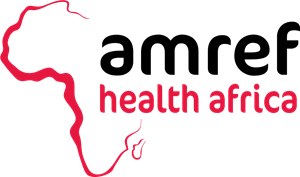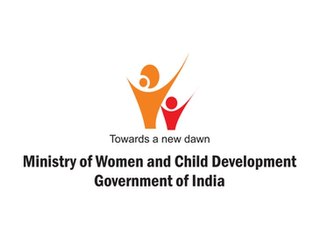Related Research Articles

Amref Health Africa was founded in 1957 by three surgeons as the Flying Doctors of East Africa. Three doctors – Sir Michael Wood, Sir Archibald McIndoe and Tom Rees – drew up a plan to provide medical care in East Africa, where they had all worked for many years as reconstructive surgeons.
Egerton University is a public university in Kenya. It is the oldest institution of higher education in Kenya.

The Centre for Development Studies (CDS), Thiruvananthapuram, Kerala, India is a premier Social Science research institute. It is also a higher education institution providing M.A. course in applied economics and PhD course in economics. It is a very reputed institution internationally also. Its main objective is to promote research, teaching and training in disciplines relevant to development.

The Ministry of Women and Child Development, a branch of the Government of India, is an apex body for formulation and administration of the rules and regulations and laws relating to women and child development in India. The current minister for the Ministry of Women and Child Development is Smriti Irani having held the portfolio since 31 May 2019.

The Ministry of Women, Family and Community Development, abbreviated KPWKM, is a ministry of the Government of Malaysia responsible for social welfare: children, women, family, community, older people, destitute, homeless, disaster victim, disabled. The ministry determines the policies and direction to achieve the goals of gender equality, family development and a caring society in line with Malaysia's commitment towards the United Nations' Convention on the Elimination of All Forms of Discrimination Against Women and the Beijing Declaration.
Kenya's health care system is structured in a step-wise manner so that complicated cases are referred to a higher level. Gaps in the system are filled by private and church run units.

The California Department of Public Health (CDPH) is the state department responsible for public health in California. It is a subdivision of the California Health and Human Services Agency. It enforces some of the laws in the California Health and Safety Codes, notably the licensing of some types of healthcare facilities. One of its functions is to oversee vital records operations throughout the state.
The Ministry of Education and Vocational Training was a government body responsible for providing education in Tanzania. The head offices were located in Dar es Salaam. Under President John Magufuli's first cabinet, the ministry was amalgamated with other functions to form the new Ministry of Education, Science, Technology and Vocational Training.
A human resource for health information system (HRHIS), also known as human resource information system (HRIS) — is a system for collecting, processing, managing and disseminating data and information on human resource for health (HRH). Depending on the level of development of a country's health care system and the organization of its workforce, an HRHIS can be computerized or paper-based, including information on numbers and distribution of health workers and track their career information. It is usually an integral part of a comprehensive health management information system, and may be used to monitor and assess the performance of the overall health system.

The Ministry of Health, abbreviated MOH, is a ministry of the Government of Malaysia that is responsible for health system: health behaviour, cancer, public health, health management, medical research, health systems research, respiratory medicine, health promotion, healthcare tourism, medical device, blood collection, leprosy control, clinical research, health care, dental care, health institution, laboratory, pharmaceutical, patient safety.

The National Health Mission (NHM) was launched by the government of India in 2005 subsuming the National Rural Health Mission and National Urban Health Mission. It was further extended in March 2018, to continue until March 2020. It is headed by Mission Director and monitored by National Level Monitors appointed by the Government of India.Rural Health Mission (NRHM) and the recently launched National Urban Health Mission (NUHM). Main program components include Health System Strengthening (RMNCH+A) in rural and urban areas- Reproductive-Maternal- Neonatal-Child and Adolescent Health, and Communicable and Non-Communicable Diseases. NHM envisages achievement of universal access to equitable, affordable and quality health care services that are accountable and responsive to the needs of the people.

The Ministry of Health and Family Welfare is a Bangladesh government ministry charged with health policy in Bangladesh. It is also responsible for all government programs relating to family planning in Bangladesh. The present minister is Zahid Maleque. The Ministry of Health and Family Welfare contains two divisions: Health Service Division and Medical Education And Family Welfare Division.

The Institute of Economic Growth (IEG) is an autonomous, multidisciplinary Centre for advanced research and training. Widely recognized as a Centre of excellence, it is one of India's leading academic institutions in the fields of economic and social development. Established in 1958, its faculty of about 23 social scientists and a large body of supporting research staff focus on emerging and often cutting-edge areas of social and policy concern. Many past and current faculty members are internationally renowned and award-winning scholars.

Armenia was admitted into the United Nations on 2 March 1992, following its independence from the Soviet Union. In December 1992, the UN opened its first office in Yerevan. Since then, Armenia has signed and ratified several international treaties. There are 20 specialized agencies, programs, and funds operating in the country under the supervision of the UN Resident Coordinator. Armenia strengthened its relations with the UN by cooperating with various UN agencies and bodies such as the International Monetary Fund, the World Bank, the World Food Programme, and with the financial institutions of the UN. Armenia is a candidate to preside as a non-permanent member of the UN Security Council in 2031.

Coordinating Ministry for Human Development and Cultural Affairs is an Indonesian coordinating ministry. The ministry has the function to coordinate, synchronized and control governance in human development and culture.

The Government agencies in Bangladesh are state controlled organizations that act independently to carry out the policies of the Government of Bangladesh. The Government Ministries are relatively small and merely policy-making organizations, allowed to control agencies by policy decisions. Some of the work of the government is carried out through state enterprises or limited companies.
Science and technology in Tanzania describes developments and trends in higher education and science, technology and innovation policy and governance in the United Republic of Tanzania since the turn of the century.
The Lilongwe University of Agriculture and Natural Resources (LUANAR) is a university outside Lilongwe, Malawi. It was formed in 2011 by a merger between Bunda College of Agriculture of the University of Malawi and Natural Resources College (NRC).

Educational management refers to the administration of the education system in which a group combines human and material resources to supervise, plan, strategise, and implement structures to execute an education system. Education is the equipping of knowledge, skills, values, beliefs, habits, and attitudes with learning experiences. The education system is an ecosystem of professionals in educational institutions, such as government ministries, unions, statutory boards, agencies, and schools. The education system consists of political heads, principals, teaching staff, non-teaching staff, administrative personnel and other educational professionals working together to enrich and enhance. At all levels of the educational ecosystem, management is required; management involves the planning, organising, implementation, review, evaluation, and integration of an institution.